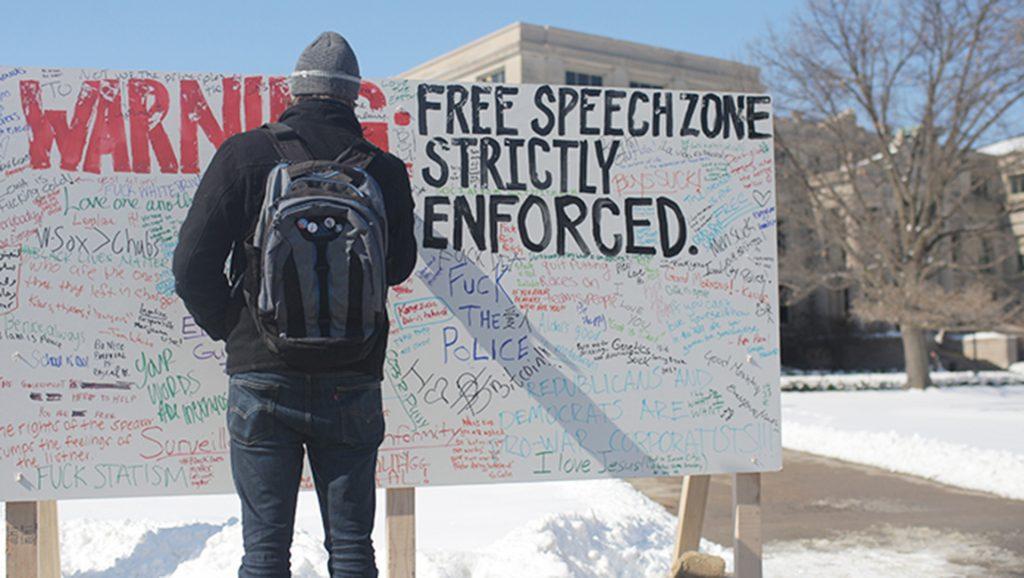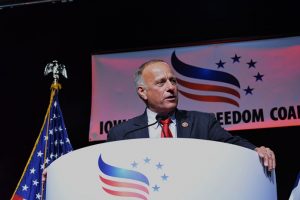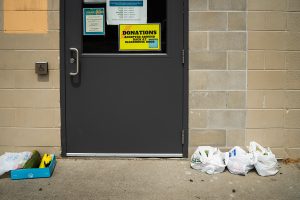Yerington: How to lessen hate speech on campus
The best way to beat this toxic hate is to use it as a platform to do good and promote diversity and acceptance.
UI senior Spencer Smith writes on a board for the Freedom of Speech protest put on by Young Americans for Liberty group on the Pentacrest on Thursday, Feb. 26, 2015. The student-run group allowed anyone to write whatever they wanted on the board.
November 12, 2018
I have walked on the T. Anne Cleary Walkway and heard religious groups shouting that gay, lesbian, and transgender people will be judged and burn in hell. I have felt sick to my stomach, but something beautiful happened one time I was watching.
While the religious protesters went on their normal hate rant, suddenly a young student stood up next to the protesters and yelled a speech about love and acceptance. The young man soon grew an even bigger crowd; even a donations pot formed for a local LGBTQ-support charity that ended up raising more than $200 before I left for class.
This showed me something: The best way to beat toxic hate is to use it as a platform to do good by promoting diversity and acceptance.
There can never be a way to ban or stifle hate speech without violating the First Amendment of the Constitution. The ACLU said something quite inspiring in response: “Instead of symbolic gestures to silence ugly viewpoints, colleges and universities have to step up their efforts to recruit diverse faculty, students, and administrators; increase resources for student counseling, and raise awareness about bigotry and its history.”
RELATED: Rosario: Campus free speech controversy is oversimplified
It has been a little more than a year after the white nationalist march in Charlottesville, Virginia, and there has been a rise in hate speech and hate crimes on college campuses. The Anti-Defamation League Center on Extremism has counted 346 incidents taking place at more than 200 colleges since that day in Virginia ranging from community colleges to Ivy League schools.
These last few years in our country have shown that hateful mentality is more prominent in our nation than we maybe once thought, even showing up in our state’s colleges. In 2016, the U.S. Education Department found that of the 155 colleges in Iowa, 13 incidences of hate crimes occurred during the course of the year.
In Psychology Today, Saul Levine wrote an article about describing traumatic events bringing people together. “Natural human impulses of empathy and commonality are aroused and intensified. People of different ethnic groups, races, ages, and socioeconomic levels feel just as we do, and we sense an implicit kinship. Even as mere spectators, we feel almost as if we are ‘there’ sharing the pain of those most intimately affected.”
It is always important to report acts of violence, discrimination and all other crimes that may happen. In the face of the hateful expression that roots itself in all these crimes, promoting a more diverse community is the main and most powerful defense. With nearly 500 student organizations at the University of Iowa, there can always be more that will help create a more welcoming environment.
A sense of unity and call to action help our community take steps to outshine hate and work to make the world more diverse and accepting.
RELATED: UI law professors tackle free-speech issues during public panel






